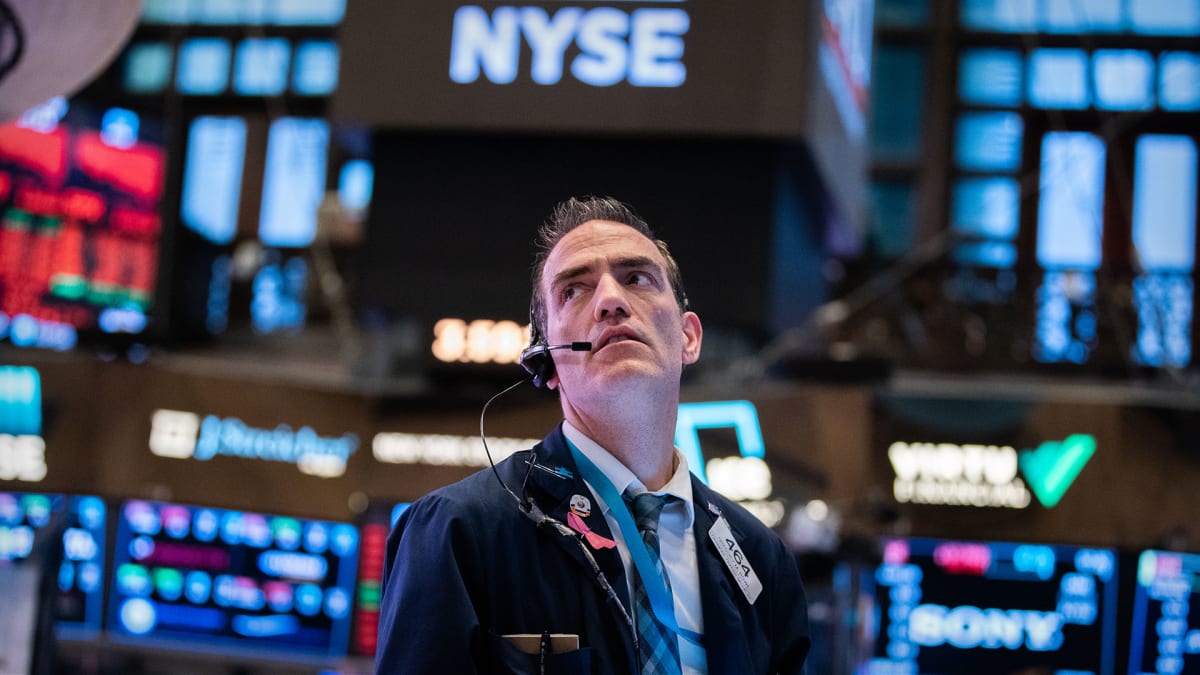
Tighter lending conditions, higher interest rates and scrutiny of the recent bank failures will lead to a slowdown in the economy, said Apollo chief economist Torsten Slok.
The collapse of Silicon Valley Bank and Signature Bank in March called attention to the massive outflow of deposits from smaller regional banks to larger banks and money market funds.
DON'T MISS: FDIC Removed $2 Billion Cash From Parent Company
Capital Markets Closed Since SVB Failed
Capital markets have "remained essentially closed since SVB went under and the longer the current stresses persist, the more harmful it will be for the economy," he said.
Raising capital via high yield debt or an IPO is nearly nonexistent while the outlook for investment grade debt is a little better, but levels of issuance are lower than before the banks went under, Slok told TheStreet.
The longer the capital markets are shut, the greater the negative impact is to the economy, but it is "still too early to figure out the magnitude of the shock," he said.
Deposits began declining in large banks since interest rates started rising in March 2022, Slok said. The Federal Reserve raised interest rates in March 2022 in an effort to curb rising inflation, the first one since 2018.
Nearly $600 billion of deposits were withdrawn from banks. An estimated $500 billion during the same period went to money market funds as customers sought higher yields while the rest likely were invested in equities, investment grade bonds and cash or went into purchases, he said.
The outflow of $600 billion in deposits was the biggest banking sector deposit outflow on record, Slok said.
"We have never seen such a significant outflow in such a short time," he said.
The economy is expected to slow down in 2023 with a recession likely to occur by this summer, Slok said. The banking crisis has highlighted the risks that financial institutions face along with the declining value of both commercial and retail real estate along with the potential for more regulatory tightening.
Lending will decline in the next few quarters, he warned.
"The economy continues to move from no landing to a hard landing, driven by the lagged effects of Fed hikes, magnified by the adverse effects of the ongoing banking crisis," Slok said.
The rescue of SVB and Signature Bank by the federal government have had a more "serious consequence" than previous crises that had nothing to do with the banking sector and no implication of behavioral change, he said.
As the Fed hiked rates, obtaining loans became more expensive and consumers and businesses tapped into their savings. Companies also faced hurdles in raising capital to expand their business.
SVB did not have enough cash to satisfy the withdrawals from clients and had to sell assets such as long-dated government securities, including Treasuries. The sale of them led to a $1.8 billion loss and the California bank attempted to raise $2.25 billion in capital by issuing new common and convertible preferred shares to cover the shortfall.

TheStreet
Banks Will Reorganize Balance Sheets
Banks will have to reorganize their balance sheets since some of the value of their assets have declined while a number of regional banks "will step on the brakes and slow down on lending from commercial to consumers," Slok said.
The economy was already slowing down before the bank collapses and consumers and businesses were withdrawing deposits, but the transfer of cash was "relatively orderly and smooth and gradual" until two weeks ago," he said. The bank collapses caused a larger outflow of cash from smaller banks to larger ones that appear less likely to fail.
Banks are now facing a decline in asset values ranging from Treasuries to commercial real estate, more regulatory risks as regulators could seek additional stress tests with regional banks to avoid another bank closure and higher funding costs for their own assets.
Lenders are likely to hold back on underwriting loans by tightening lending standards and slow down the number of loans that are approved.
A decline in loan approvals could contract growth in the broader economy, Slok said.
"The risk with the tightening of credit conditions and banks stepping on the brakes is it makes it harder for people to borrow money for credit cards and loans, " he said. "You could run the risk that spending and hiring by companies could have a sudden stop since credit is being frozen."
Timing of Recession Moved Up
The rate hikes by the Fed combined with a banking crisis mean the U.S. economy could be in a recession by the middle of 2023, Slok said.
The Fed "definitely will not be raising interest rates in May," he said.
Instead, the central bankers will cut interest rates later this year in an effort to boost the economy and confidence of consumers and companies.







